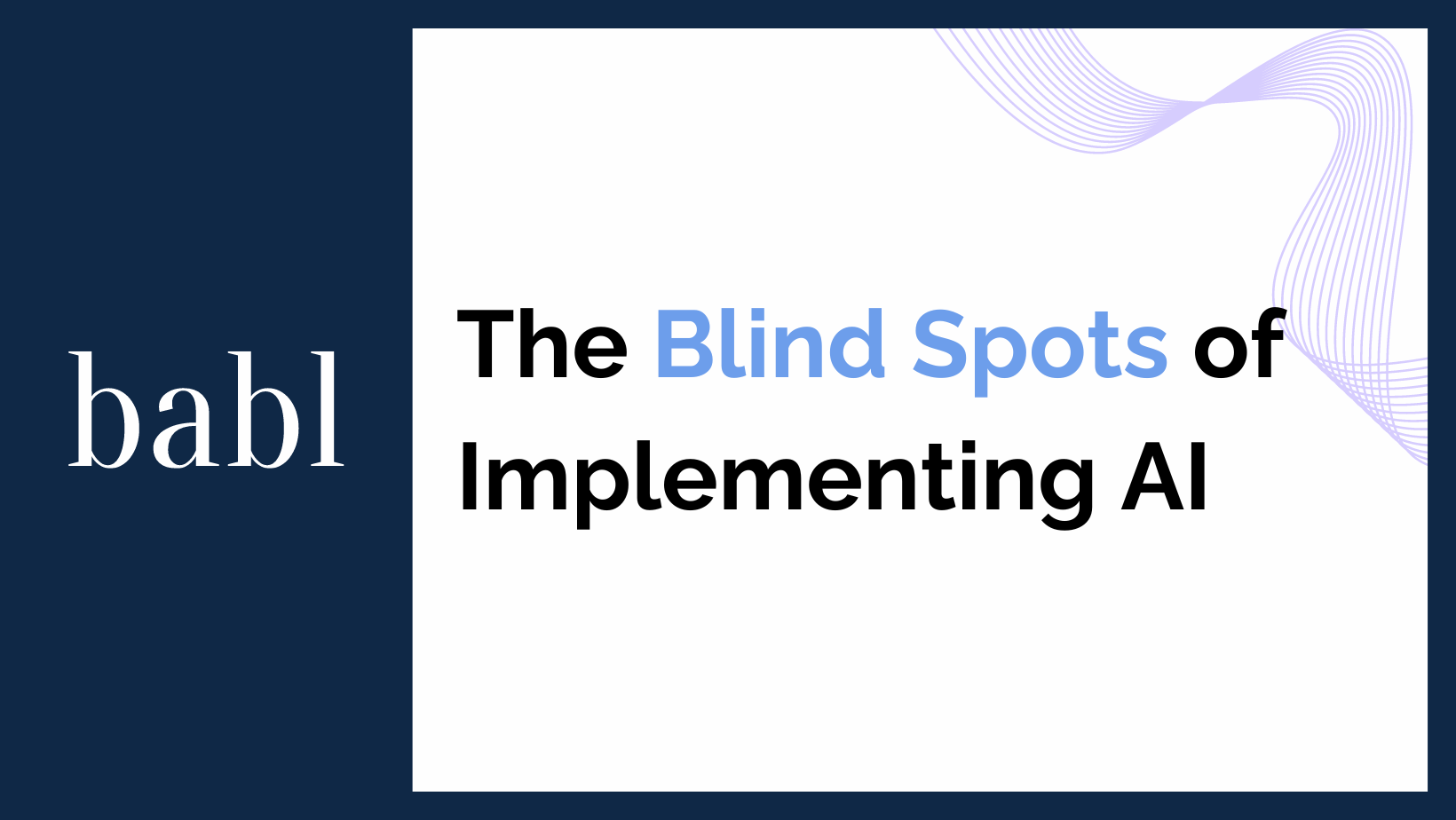Opinion Blog
Businesses today are racing to implement AI to gain a competitive edge. However, many companies overlook serious risks that come with AI systems. These blind spots have evolved over time in the field of AI. All the blind spots are still there, but awareness is evolving as well. With this awareness, you should be able to implement proper governance strategies to mitigate those risks and build trusts with your consumer.
A major blind spot is reputational risk. The long term value of your product depends on trust. If you have an AI system that behaves inappropriately or has biased outcomes, it can seriously damage your company’s reputation and erode customer trust. Another blind spot is lack of governance to manage AI risks. On top of that, this can lead to various other blind spots moving forward.
Many companies believe they can implement AI without changing internal governance processes. But effective governance is critical for controlling risks. One of the first steps you should take is to consider designating someone responsible for AI governance. The next step would be to conduct an inventory of current AI systems, to see which of your products use AI. With this, the next important step is to perform risk assessments to understand potential dangers of those AI systems. With risks identified, companies can then establish policies and procedures to mitigate them.
For companies with some governance in place, you should integrate AI governance throughout existing risk management processes through training and education. There are two models you can use to handle this – a centralized governance function versus a more decentralized, federated approach where business units manage local AI risks. The decentralized method often scales better across large enterprises.
Having your own internal compliance teams will eventually be necessary, but there are several issues you will encounter with this endeavor. Building the team will be hard because not a lot of people have specialization in this field. That means members of these internal compliance teams may need extensive training. On top of that, external audits also provide assurance that proper governance is happening. That’s because a third-party auditor, like BABL AI, offers specialized expertise to validate processes and build trust. BABL AI focuses specifically on AI auditing and pushes the frontier of best practices.
Being an early adopter of AI governance will show your consumers that you are proactively adopting strong governance guidelines with a commitment to ethical AI. You’ll have the opportunity to gain a competitive advantage as a leader in responsible AI. This is important since consumers will increasingly seek out trustworthy brands in the future. Attempting to play catch-up later, when various countries begin enforcing AI regulations, will damage your trust and reputation. That moment isn’t too far off as the EU AI Act nears completion.
When considering all of this, don’t forget that trust is valuable. When a consumer is given two businesses that are offering the same product with automation involved, the consumer is going to go with the business that they trust. In the future, consumers will want to buy and work with companies that have cared about ethical AI from the beginning.
If you want to have a competitive edge, don’t hesitate to reach out to BABL AI. Their team of Audit Experts can provide valuable insights on implementing AI.





